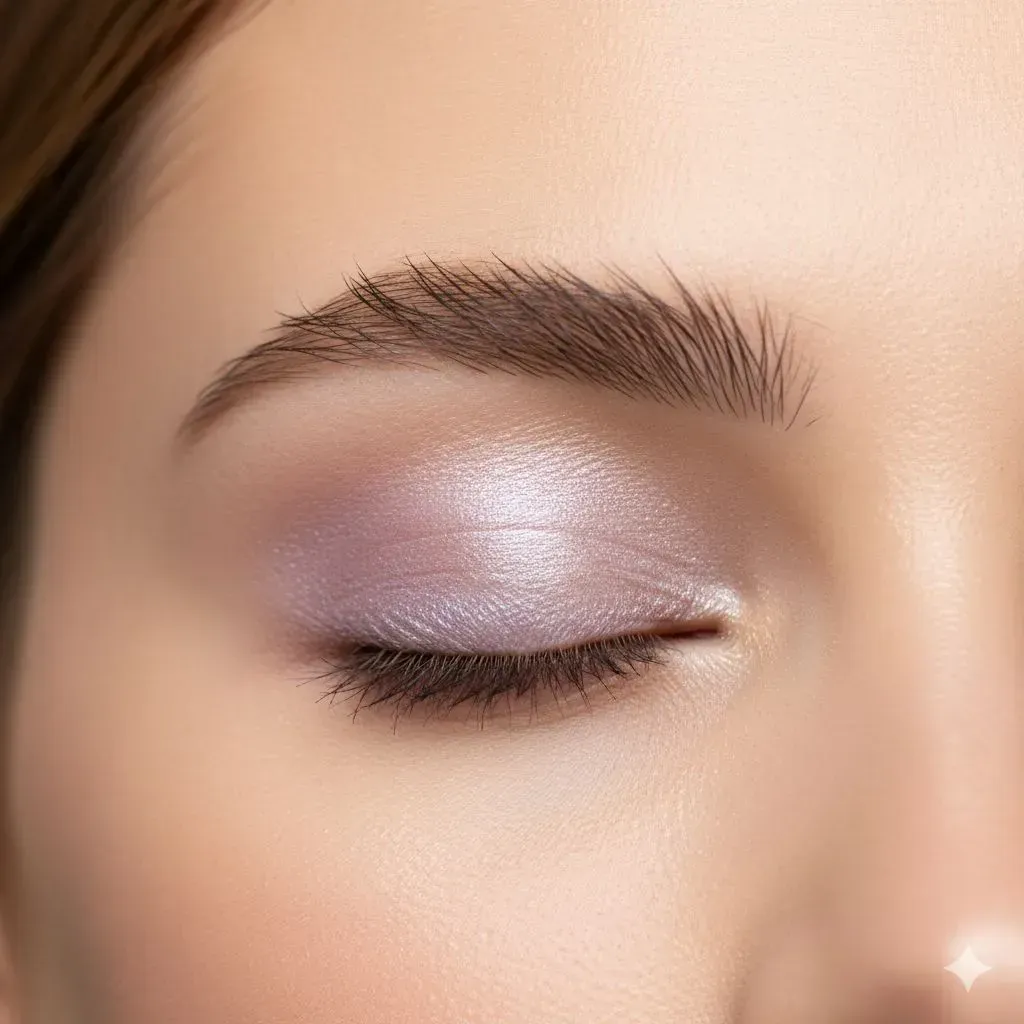Enjoy Makeup Again: Your Expert Guide for Sensitive Eyes in San Francisco
Do you love the confidence that makeup gives you but hate the red, itchy, or watery eyes that often follow? You're not alone. For many, the joy of cosmetics is overshadowed by discomfort. At Eyes In Disguise, Dr. Michelle Blas believes you shouldn't have to choose between beauty and comfort. We're here to help you find eye-friendly makeup solutions that fit your lifestyle.
See the World in Style
Where Vision Meets Luxury with Advanced Eye Care in San Francisco

Why Does Makeup Irritate Sensitive Eyes?
Your eyelids play a crucial role in maintaining the health of your eyes. They contain special oil glands that moisturize your eye's surface with every blink, keeping them comfortable and protected. The wrong makeup products or removal techniques can strip away these essential natural oils or introduce irritating ingredients, leading to dryness and sensitivity.
That's why understanding what to use and how to use it is the first step toward a healthier beauty routine.
Your Ultimate Guide to Eye-Friendly Makeup
To empower her patients, Dr. Michelle Blas has created the CLEAN Makeup Manual for Sensitive Eyes—and she's offering it to you for free. This comprehensive guide is packed with expert advice to help you navigate the world of cosmetics without compromising your eye health.
The Perfect Makeup Remover
Take a simple quiz to find the best remover type for your specific skin and lifestyle
11 Essential Tips
Non-negotiable best practices for applying and caring for makeup with sensitive eyes
Toxic Ingredients to Avoid
Complete checklist of common irritants found in cosmetics
Product Recommendations
Trusted, eye-doctor-recommended brands and products that are clean and safe
Download Your FREE Clean Makeup Manual
Get instant access to Dr. Blas's expert tips and product recommendations. Start your journey to comfortable, beautiful eyes today!
Are You Looking For?
The Ultimate eyewear that matches my vibe
A stylish way to protect my eye
The perfect glasses to express my personality
The best frames to suit my face shape myself
Ways to priorotize my eye health
Emergency eye care services
A Sneak Peek: Top Tips from the Guide
A Sneak Peek: Top Tips from the Guide
Avoid Waterproof Formulas
While long-lasting, waterproof makeup is difficult to remove and often requires harsh removers and excessive rubbing, which can irritate your eyes and delicate eyelid skin.
Know When to Toss It
Makeup has an expiration date! Using products past their prime can expose your eyes to harmful bacteria. Mascara and liquid eyeliner, for example, should be replaced every 3 months.
Never Share Eye Makeup
Sharing cosmetics like mascara, eyeliner, or eyeshadow is a leading cause of eye infections. Always use your own products.
Choose Cream Over Powder
Whenever possible, opt for cream eyeshadows and foundations. Powders can easily flake and fall into the eyes, causing irritation.
Ready for a Personalized Consultation?
While this guide is a fantastic start, nothing beats personalized advice tailored to your unique eyes. If you're struggling with makeup-related irritation, dry eye, or other concerns, schedule a consultation with Dr. Michelle Blas.
As San Rafael's trusted optometrist for lifestyle-focused eye care, she can help you build a routine that lets you look and feel your best.
Frequently Asked Questions
What is the best type of makeup remover for sensitive skin?
For skin that is prone to redness or breakouts, micellar cleansing water is the best choice.
Can I still wear makeup if I have oily skin? What should I use to remove it?
Yes. If you have oily skin and feel like you can never get your makeup fully clean, an oil-free makeup remover is the recommended choice.
Is it really that bad to leave my makeup on overnight?
Yes, one of the most important best practices for sensitive eyes is to always remove your makeup every night.
What type of eyeliner is safest for sensitive eyes?
Pencil eyeliners are the best option for sensitive eyes. You should also avoid applying liner to the "water-line" or "tight-lining" your eyes.
How often should I replace my mascara and eyeliner?
To keep your products clean and avoid infection, you should dispose of mascara and liquid eyeliner every 3 months.
How do I clean my makeup brushes properly?
First, wipe the dry brush on a clean towel. Then, mix a sulfate-free shampoo in warm water, swirl the brush to clean it, rinse under warm running water, and lay it flat on a clean towel to air dry. Never stand brushes up to dry, as water can run into the handle.
Why do my eyes get red and irritated when I wear makeup?
Your eyelids have oil glands that are essential for keeping your eyes moist and protected. Some makeup products contain toxic or irritating ingredients that can interfere with these glands, while improper hygiene can also lead to irritation. This guide helps you choose products and practices that are safe for sensitive eyes.
Why is waterproof mascara not recommended for sensitive eyes?
The manual advises against using waterproof makeup, as it is harder to remove and the removal process can be harsh on sensitive eyes and the delicate skin around them.
Are powder or cream eyeshadows better for sensitive eyes?
Cream eyeshadows and foundations are recommended over powders to avoid particles getting into the eyes and causing irritation.
What are the most important toxic ingredients I should avoid in my makeup?
There is a long list of potentially toxic ingredients, but some common ones to watch for are Benzalkonium chloride, Parabens (like ethylparaben & methylparaben), Formaldehyde-releasing compounds, and Retinoids.
How can I check if the makeup products I own are safe?
You can use the EWG's Skin Deep Cosmetics Database ( ewg.org ) to look up products and ingredients. It provides a hazard score from 1-10 to help you understand the potential risks.
What is "tight-lining" or "water-lining," and why is it bad?
This is the practice of applying eyeliner to the inner rim of your eyelid. It is not recommended because it can block the oil glands that are crucial for eye health and can introduce bacteria directly into the eye.
Is it safe to share my eye makeup with a friend?
No, you should never share your eye makeup. Doing so can easily transfer bacteria and lead to infections.
How often do I need to throw out my eye makeup?
It's crucial to dispose of makeup on time to prevent bacterial growth.
Key timelines are:
Mascara: Every 3 months
Liquid Eyeliner: Every 3 months
Eye Shadow Palettes: Every 2 years
Pencil Eyeliner: Should be sharpened daily
Primer: 1-2 years
Makeup Removal
What is the best makeup remover for someone who travels a lot?
Makeup remover wipes and cloths are a great option for travel because they are easy to transport and won't leak in your bag.
I wear eyelash extensions. What kind of makeup remover should I avoid?
You should avoid oil-based makeup removers, as the oil can dissolve the glue used for eyelash extensions.
Are reusable makeup cloths effective and safe?
Yes, reusable microfiber cloths are considered one of the safest methods for highly sensitive eyes because they are completely chemical-free and only require water.
How often should I be cleaning my makeup brushes?
The cleaning frequency depends on the brush:
Foundation and powder brushes: Weekly
Eyeshadow and concealer brushes: Every other week
Other brushes: Monthly
What is the proper way to clean and dry my makeup brushes?
Use a sulfate-free shampoo in warm water to gently swirl and rub the bristles clean, then rinse under running water. To dry, lay the brushes flat on a clean towel; never stand them upright, as water can damage the handle and loosen the bristles.
See the World In Style
Visit Us
Eyes in Disguise Optometry





